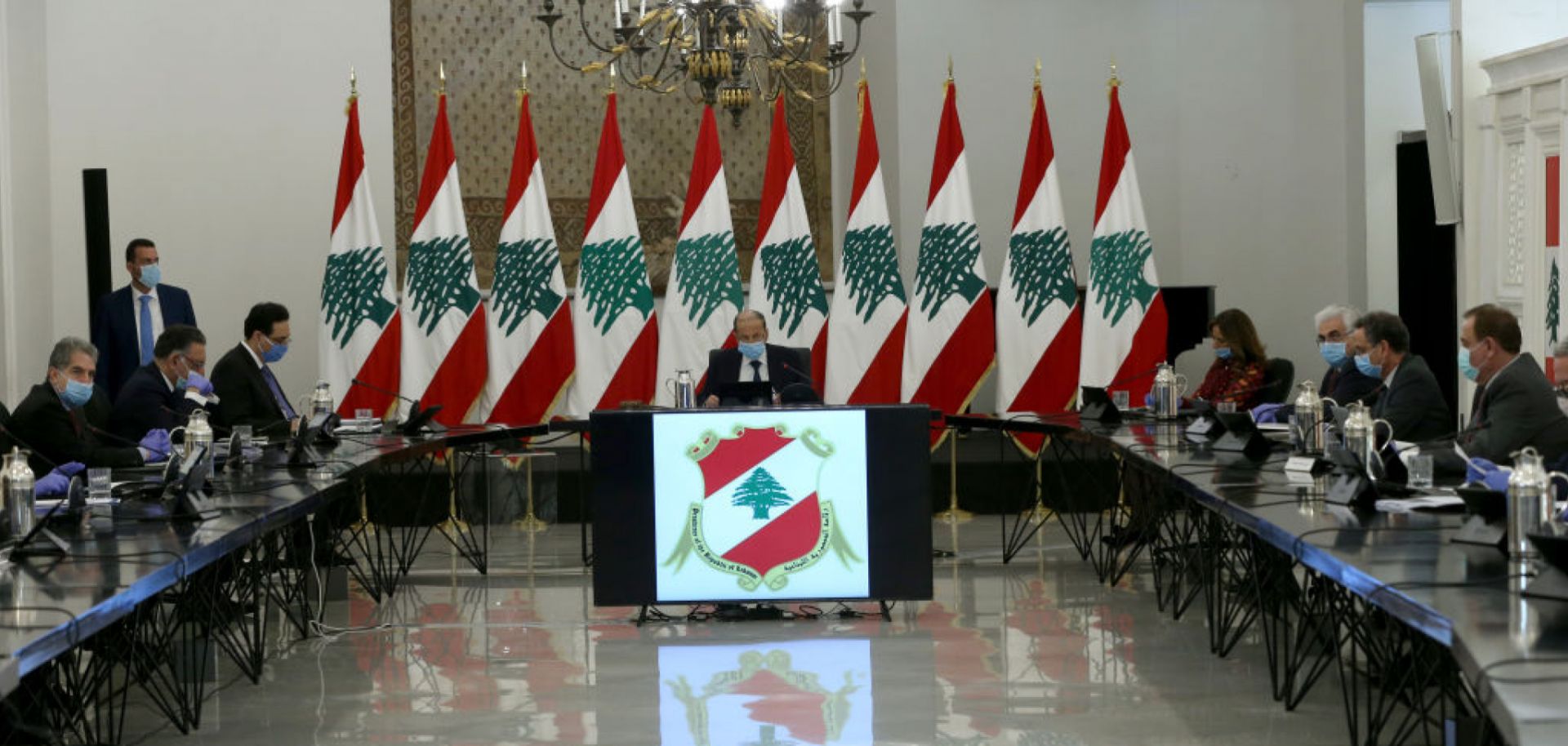ASSESSMENTS
COVID-19 Temporarily Tamps Down Unrest in the Middle East


Mar 27, 2020 | 20:09 GMT

Lebanese President Michel Aoun (C) wears a face mask as a preventive measure against COVID-19 during a March 26, 2020, meeting in Beirut to evaluate measures taken against the virus' spread.
(Lebanese Presidency Office/Handout/Anadolu Agency via GETTY IMAGES)
Highlights
- The loss of momentum in long-running protest movements in the Middle East and North Africa is only temporary.
- The underlying conditions driving the protests remain in place, and will be made even worse by the economic shock caused by the COVID-19 pandemic.
- While Q2 could see depressed demonstration activity, Q3 and Q4 could become tumultuous in the Middle East and North Africa.
Subscribe Now
SubscribeAlready have an account?
